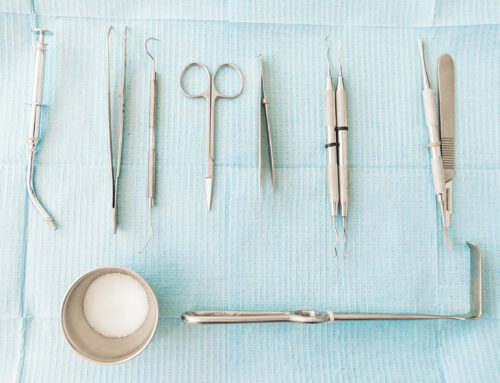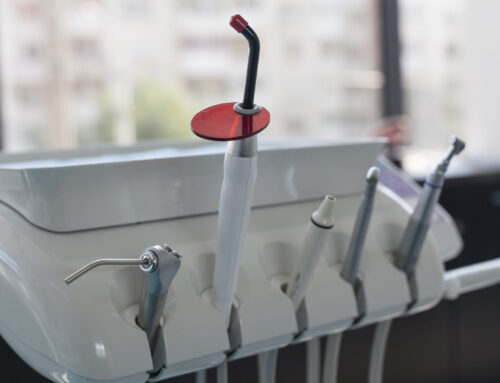Dental anxiety is very common in adults and children. Many patients who suffer from dental anxiety feel uncomfortable in a dental or medical setting. Some of the feelings a patient is experiencing can be caused by a medical condition such as PTSD or OCD, while others have had a negative experience in a dental setting. Learn what causes dental anxiety and what to do if you are experiencing it surrounding your next checkup. The team at Gentle Dentistry is more than willing to help create an environment you feel comfortable in for your next visit!
What is Dental Anxiety?
Dental anxiety is any anxiety, fear, or stress associated with a dental setting. This anxiety can cause avoidance or delay in receiving proper dental care. Some medical conditions such as generalized anxiety disorder, PTSD (Post-traumatic stress disorder), bipolar disorder, schizophrenia, or a previous head or neck injury can increase dental anxiety. Some patients experience anxiety caused by a phobia like agoraphobia, the fear of being in situations where you feel you can’t escape, claustrophobia, the fear of enclosed spaces, or some have OCD (obsessive-compulsive disorder) surrounding cleanliness.
Dental anxiety, in some cases, can be so severe that some patients put off regular dentist visits, which can cause oral health to decline and cause further anxiety. During these visits, dentists check for conditions such as mouth cancer, which can be more prevalent in patients who smoke or consume alcohol. Avoiding regular cleanings can result in dental disease, causing more complex issues and more invasive treatment and care. Another common concern with patients not attending regular cleanings is gum disease caused by excessive plaque buildup on the teeth, irritating the surrounding gums. If a patient has had a negative experience with a previous provider, scheduling checkups and seeking help when experiencing discomfort might be difficult.
Some common signs of dental anxiety include sweating, racing heartbeat, visible stress (panicking or crying), low blood pressure and fainting, and withdrawal, usually in the form of humor or aggression. Dr. Evans and Dr. Goold are familiar with these signs, as dental anxiety is common in children and adults. The severity can vary between patients, but communicating concerns with the dentist can help them provide a more comfortable environment for you as you receive your treatment. With proper care, symptoms can be reduced or eliminated entirely.
Managing Dental Anxiety
When experiencing anxiety, there are some practices that you can try to ease any uncomfortable feelings you might have. Consider these methods:
- Deep breathing or meditation. Taking a moment before your treatment can help you ease your mind and relax your body before your treatment.
- Share your concerns with your dentist. Creating comfortable communication between you and Dr. Goold or Dr. Evans can help them provide a more relaxed environment. They are willing to discuss some options to walk you through your procedure to calm your nerves or offer sedation if you feel it is necessary. Ask one of our staff members for a weighted blanket if you think that might be helpful.
- Plan ahead. Schedule your appointment on a day that works best for you, preferably when you do not feel rushed and have time to prepare for your visit.
- Watch your food and water consumption. Avoid foods that have a high sugar content or contain caffeine because they can cause you to be jittery.
- Consider additional medication. Dr. Evans and Dr. Goold will work with you if you feel overly anxious. They might offer you nitrous oxide (laughing gas), conscious sedation that will help you relax, or general anesthesia might be helpful if you are receiving a lengthy procedure.
Anxiety can be treated with these coping techniques. Some cases may be more severe and require further discussion with Dr. Goold or Dr. Evans.
In Conclusion
Dentist visits can often cause anxiety in patients of all ages. Dental anxiety can cause a patient to avoid the dentist altogether or experience uneasy feelings when in a dental setting. Medical conditions can also cause a patient to experience dental anxiety. At Gentle Dentistry, we do our best to provide a comfortable environment for each patient. With the help of coping techniques before your visit and communicating concerns with Dr. Goold and Dr. Evans, we are confident that we can provide a pleasant space for your regular dental checkups and procedures.
Schedule an appointment with Dr. Goold or Dr. Evans at Gentle Dentistry if you are experiencing anxiety surrounding the dentist. Let the team at Gentle Dentistry help you create an environment you feel comfortable in to receive your dental care.




